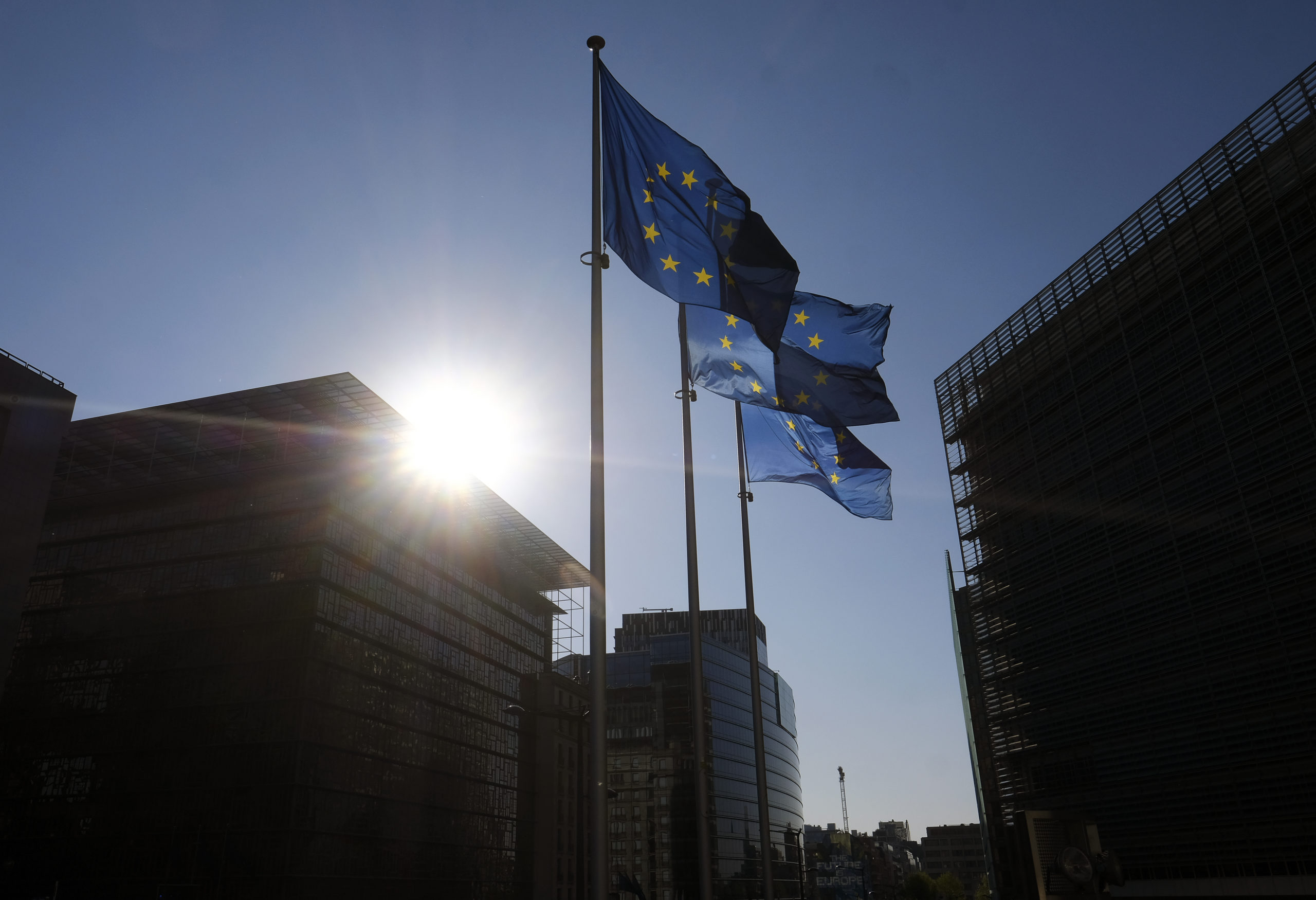Brussels wants to rely on online platforms, fact-checkers and “strategic communication” to combat COVID-19 disinformation, according to a draft text seen by POLITICO.
In the draft text, the European Commission mentions disinformation campaigns from foreign actors “in particular China and Russia” as well as misleading health care information, conspiracy theories — including on 5G —, illegal hate speech, consumer fraud and cybercrime as challenges arising during the coronavirus pandemic.
Commission Vice President Věra Jourová and the EUs foreign policy chief Josep Borrell will present a communication Wednesday on coronavirus-related disinformation that will set the scene for a longer-term approach in the European Democracy Action Plan and the Digital Services Act. Those two packages of proposals on online content are expected to be published by the end of the year.
As reported earlier by POLITICO, tech companies who have signed the Commissions code of practice on disinformation will also be asked to provide monthly updates on how theyre tackling misinformation connected to COVID-19.
The nonbinding communication could still change before its adoption.
To counter propaganda efforts by foreign actors, the Commission wants to strengthen its own communication efforts within and outside the EU. “Its high time we stepped up on this and not allow others, such as China, to occupy the space,” Jourová said last week.
The text recommends to “further invest” in strategic communication capabilities and step up the use of existing mechanisms, including through the Commissions cooperation channels with member countries and the EEAS Strategic Communications Task Forces. These units have struggled for funding in recent years as many EU countries have bickered over their role in combatting state-backed disinformation, particularly coming from Russia.
EU delegations and the Commissions representations in the EU should play a more active role in national public debates. The Commission also pledges to facilitate the exchange of best practices on specific issues relating to disinformation, such as micro-targeting, and intensify existing partnerships including with the G7 and NATO.
Platforms and media literacy
The reports from platforms would cover initiatives to promote authoritative content at EU and member country level; initiatives and tools to inform users when they interact with disinformation; information on efforts to manipulate the platform; and data on flows of advertising linked to COVID-19.
In addition to Facebook, Google and Twitter, reporting should be broadened to other platforms which are not currently signatories of the Commissions code of practice on disinformation, according to the draft text, which mentions Chinese app TikTok and Facebooks WhatsApp.
The Commission also wants online platforms to cooperate more closely with researchers and fact-checkers, as well as agree with the newly established European Digital Media Observatory on a framework to provide academic researchers with privacy-protected access to data.
In the text, Brussels urges caution to safeguard freedom of expreRead More – Source
Brussels wants to rely on online platforms, fact-checkers and “strategic communication” to combat COVID-19 disinformation, according to a draft text seen by POLITICO.
In the draft text, the European Commission mentions disinformation campaigns from foreign actors “in particular China and Russia” as well as misleading health care information, conspiracy theories — including on 5G —, illegal hate speech, consumer fraud and cybercrime as challenges arising during the coronavirus pandemic.
Commission Vice President Věra Jourová and the EUs foreign policy chief Josep Borrell will present a communication Wednesday on coronavirus-related disinformation that will set the scene for a longer-term approach in the European Democracy Action Plan and the Digital Services Act. Those two packages of proposals on online content are expected to be published by the end of the year.
As reported earlier by POLITICO, tech companies who have signed the Commissions code of practice on disinformation will also be asked to provide monthly updates on how theyre tackling misinformation connected to COVID-19.
The nonbinding communication could still change before its adoption.
To counter propaganda efforts by foreign actors, the Commission wants to strengthen its own communication efforts within and outside the EU. “Its high time we stepped up on this and not allow others, such as China, to occupy the space,” Jourová said last week.
The text recommends to “further invest” in strategic communication capabilities and step up the use of existing mechanisms, including through the Commissions cooperation channels with member countries and the EEAS Strategic Communications Task Forces. These units have struggled for funding in recent years as many EU countries have bickered over their role in combatting state-backed disinformation, particularly coming from Russia.
EU delegations and the Commissions representations in the EU should play a more active role in national public debates. The Commission also pledges to facilitate the exchange of best practices on specific issues relating to disinformation, such as micro-targeting, and intensify existing partnerships including with the G7 and NATO.
Platforms and media literacy
The reports from platforms would cover initiatives to promote authoritative content at EU and member country level; initiatives and tools to inform users when they interact with disinformation; information on efforts to manipulate the platform; and data on flows of advertising linked to COVID-19.
In addition to Facebook, Google and Twitter, reporting should be broadened to other platforms which are not currently signatories of the Commissions code of practice on disinformation, according to the draft text, which mentions Chinese app TikTok and Facebooks WhatsApp.
The Commission also wants online platforms to cooperate more closely with researchers and fact-checkers, as well as agree with the newly established European Digital Media Observatory on a framework to provide academic researchers with privacy-protected access to data.
In the text, Brussels urges caution to safeguard freedom of expreRead More – Source











